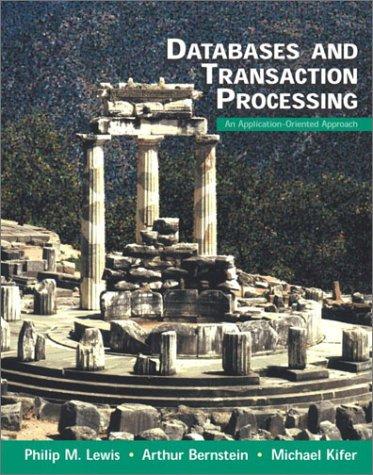Question
I am trying to code a C++ implementation of a Bloom filter using the Murmur3 hash function. My implementation is based on this site: http://blog.michaelschmatz.com/2016/04/11/how-to-write-a-bloom-filter-cpp/
I am trying to code a C++ implementation of a Bloom filter using the Murmur3 hash function. My implementation is based on this site: http://blog.michaelschmatz.com/2016/04/11/how-to-write-a-bloom-filter-cpp/ Somehow, in my BloomFilter header file, the hash function throws an incomplete type error, also, when I use the hash function inside of the add function, I get a "hash is ambigious error". What can I do to fix this?
#ifndef BLOOM_FILTER_H
#define BLOOM_FILTER_H
#include "MurmurHash3.h"
#include
//basic structure of a bloom filter object
struct BloomFilter {
BloomFilter(uint64_t size, uint8_t numHashes);
void add(const uint8_t *data, std::size_t len);
bool possiblyContains(const uint8_t *data, std::size_t len) const;
private:
uint8_t m_numHashes;
std::vector
};
//Bloom filter constructor
BloomFilter::BloomFilter(uint64_t size, uint8_t numHashes)
: m_bits(size),
m_numHashes(numHashes) {}
//Hash array created using the MurmurHash3 code
std::array
{
std::array
MurmurHash3_x64_128(data, len, 0, hashValue.data());
return hashValue;
}
//Hash array created using the MurmurHash3 code
inline uint64_t nthHash(uint8_t n,
uint64_t hashA,
uint64_t hashB,
uint64_t filterSize) {
return (hashA + n * hashB) % filterSize;
}
//Adds an element to the array
void BloomFilter::add(const uint8_t *data, std::size_t len) {
auto hashValues = hash(data, len);
for (int n = 0; n < m_numHashes; n++)
{
m_bits[nthHash(n, hashValues[0], hashValues[1], m_bits.size())] = true;
}
}
//Returns true or false based on a probabilistic assesment of the array using MurmurHash3
bool BloomFilter::possiblyContains(const uint8_t *data, std::size_t len) const {
auto hashValues = hash(data, len);
for (int n = 0; n < m_numHashes; n++)
{
if (!m_bits[nthHash(n, hashValues[0], hashValues[1], m_bits.size())])
{
return false;
}
}
return true;
}
#endif
Step by Step Solution
There are 3 Steps involved in it
Step: 1

Get Instant Access to Expert-Tailored Solutions
See step-by-step solutions with expert insights and AI powered tools for academic success
Step: 2

Step: 3

Ace Your Homework with AI
Get the answers you need in no time with our AI-driven, step-by-step assistance
Get Started


